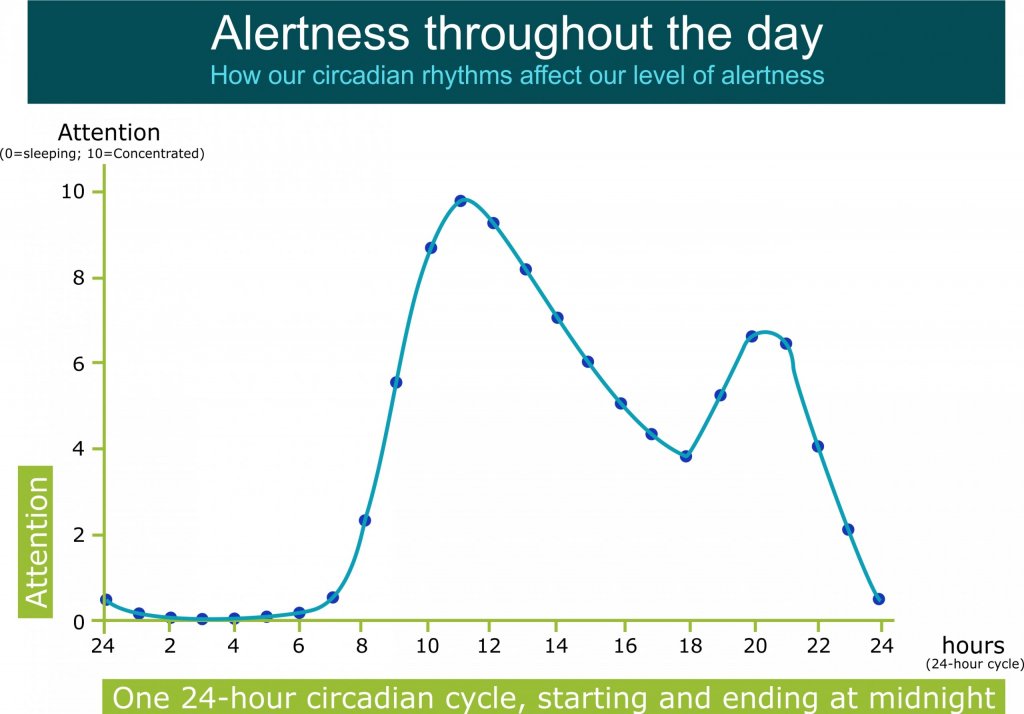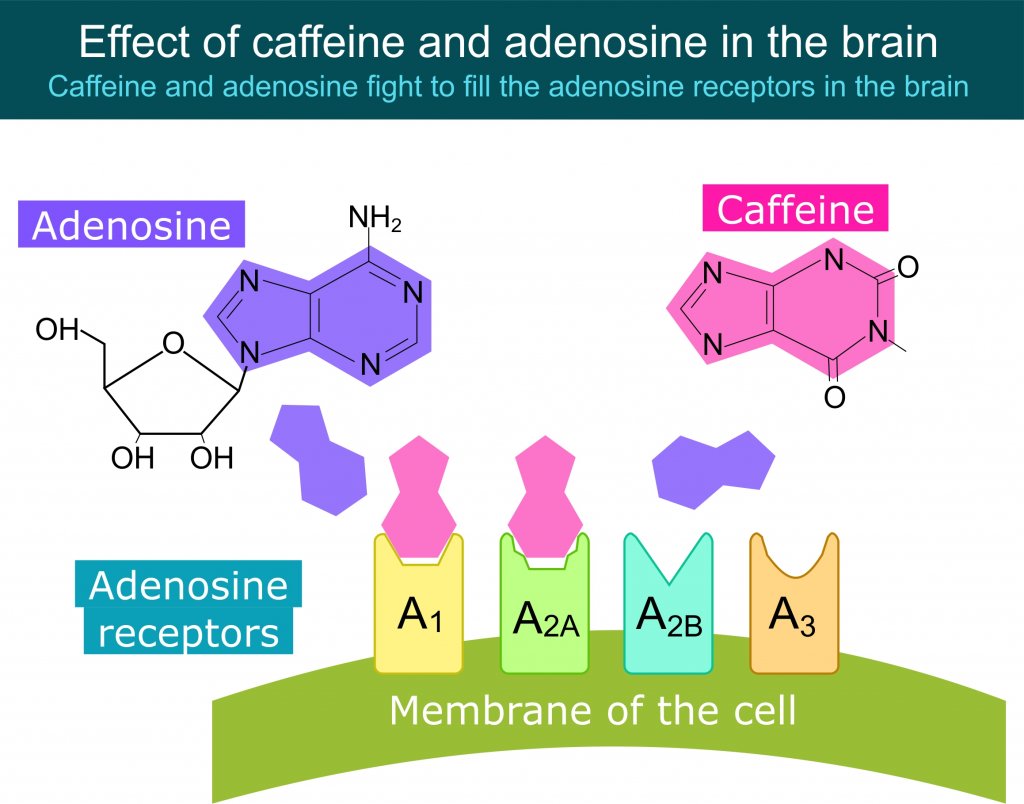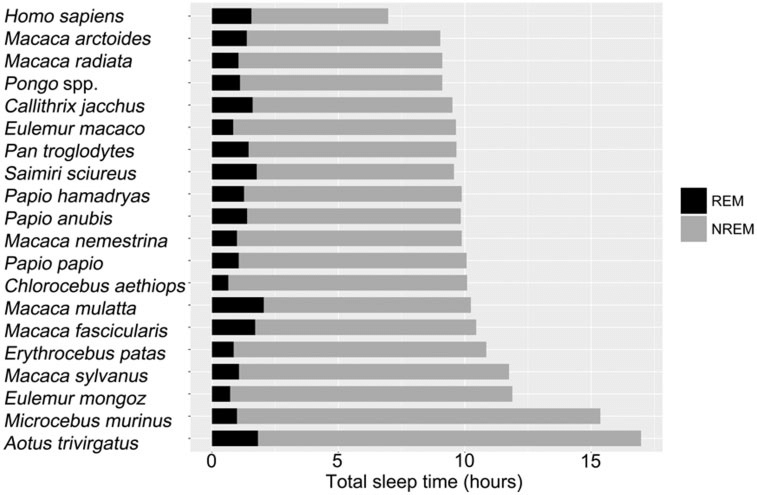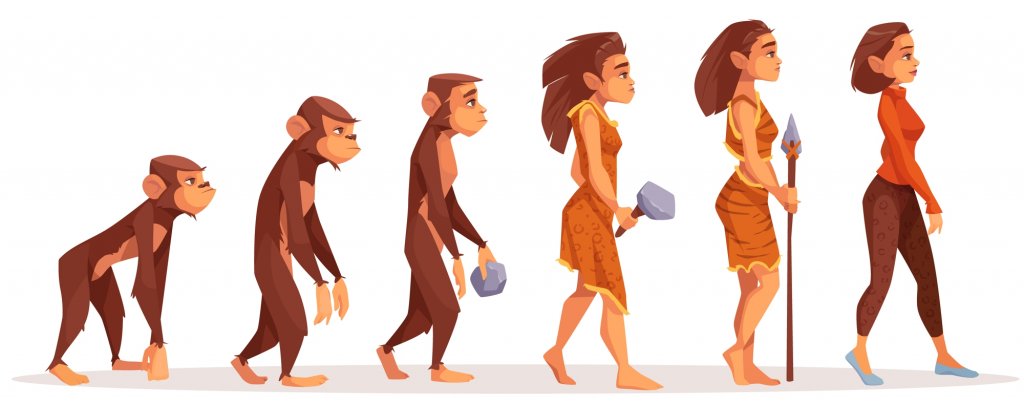Have you ever wondered why we sleep? Think about it. Life is short. We only have about 75 to 100 years on this planet (if we’re lucky). Yet, we spend six to eight hours of the day (one-fourth to one-third of our lives) fast asleep, unconscious, not going anywhere, not doing anything, not enjoying, not improving, just laying there unconscious.
Believe it or not, the question of why we sleep is a new topic in science. For years, scientists simply accepted theories (now myths) about why we sleep like “that we sleep to conserve energy” or “that we sleep so we don’t get into trouble wandering around in the dark.” Although the first sleep research was published about a 100 years ago, the topic really wasn’t considered important until 2005 when the Journal of Clinical Sleep Medicine was published[1]The Extraordinary Importance of Sleep. The Detrimental Effects of Inadequate Sleep on Health and Public Safety Drive an Explosion of Sleep Research.
Now that scientists have started to study the topic, they’ve come up with a long list of reasons for why we sleep. We sleep because we’re tired (how and why is the interesting part). We sleep for evolutionary reasons. We sleep because sleeping has countless benefits for the brain and body. We sleep because not sleeping is seriously dangerous. There are so many reasons why we sleep.
This article explores the many reasons we sleep from multiple perspectives. If you don’t sleep enough, you’ll surely be asking for advice for sleeping, because what you learn is about to blow your mind.
- 1 What is sleep? What happens when we sleep?
- 2 Why do we sleep? Because we’re tired.
- 3 Why do we sleep? Because evolution made us that way
- 4 Why do we sleep? Because sleeping is so good for us (and not sleeping is seriously dangerous).
- 5 How much sleep do we need? And how much are we actually getting?
- 6 Not getting enough sleep?
What is sleep? What happens when we sleep?

Before we get into the many reasons why we sleep, we should first talk about what sleep actually is and what happens to the brain and body when we sleep.
Sleep is a naturally recurring state of mind and body that leads to altered consciousness, reduced muscle activity, limited sensory input (like seeing, smelling, touching, tasting, etc.), and limited reactions to external stimuli (like noises)[2]Sleep. From Wikipedia, the free encyclopedia. When we sleep, we’re mostly unconscious or semi-conscious, but many of the functions of our brain and body remain active. [3]¿Qué es el Sueño? So what are the brain and body doing during the six to eight hours of the day that we’re unconscious?
Here’s the simple answer. As we sleep, our brain and body are cycling through various stages of sleep called Non-REM and REM sleep. REM stands for Rapid Eye Movement and is the type of sleep we experience when we dream, and our eyes move quickly behind our eyelids as we see pictures and play out scenarios in our heads. Non-REM sleep is the deep sleep we experience when we’re not dreaming at all and waking up seems nearly impossible.
Both REM and Non-REM sleep are essential for the brain and body. If we get enough REM sleep, we experience all of the benefits of REM sleep. If we don’t, we suffer the consequences of lacking REM sleep. Likewise, if we get enough Non-REM sleep, we experience all of it’s benefits, and if we don’t… you see where this is going. You can read more about the specific benefits of (and consequences of lacking) REM and Non-REM sleep another time. For now, let’s get back to why we sleep.
Why do we sleep? Because we’re tired.

The most practical answer to the question of why we sleep is because, well, we’re tired. As the hours go by, we find ourselves less desire to do things and more desire to crawl into the bed, get under the covers, and rest. But why and how? What’s happening in the brain and body that makes us feel tired?
There are two things that are going on that make us feel tired. One is our body’s reaction to its own circadian rhythm (our 24-hour body-clock that tells us to wake up when it’s light and go to sleep when it’s dark). And the other has to do with the increasing “sleep pressure” we feel as we spend more time awake.
The circadian rhythm and melatonin
Let’s talk first about what a circadian rhythm is and how it works. A circadian rhythm is an internal process that regulates the natural sleep-wake cycle of living beings. All living beings have one (including plants, animals, fungi and cyanobacteria) [4]Circadian rhythm, and all circadian rhythms are approximately 24 hours in length.
Is it a coincidence that our circadian rhythms are the same length as a day? Absolutely not. The circadian rhythm that all living beings experience is directly linked to sunlight. Still, that doesn’t mean that all living beings are programmed to be awake all day and asleep all night.
Although all species follow the same 24-hour clock, their brains and bodies react differently to the clock depending on their specific needs. Some species are programmed to be awake when the sun is up; others (nocturnal animals) wake up when the sun goes down. Many animals take short naps throughout the day, or the night, or during the day and night. The circadian rhythm of all living beings is about 24 hours, but what those living beings do during those 24 hours differs greatly.
Humans, as it turns out, are programmed to sleep for about seven to nine hours every night. So, like clockwork, as day turns to night, our brain releases a hormone called melatonin which makes us feel tired just after nightfall. Our circadian rhythm also causes a dip in energy in the early afternoon hours which is why some evidence suggests that we’re also programmed for short afternoon naps[5]The benefits of napping.
The graph below shows how our circadian rhythms affect our level of alertness throughout the day.

But our circadian rhythm isn’t the only reason we start to feel tired as the hours go by…
Sleep pressure and adenosine
From the very moment we wake up to the moment we fall asleep, a chemical called adenosine is building up in our brains causing us to feel, what scientists like to call, “sleep pressure.” The more adenosine in our brains, the more tired we feel, and the more “pressure” we feel to sleep. The only thing that breaks down this chemical and relieves us of this sleep pressure is actually sleeping.
At this point, you’re probably thinking about how your afternoon cup of coffee does wonders to relieve the sleep pressure you feel at around 3 pm…
Caffeine can provide temporary relief from sleep pressure by blocking adenosine receptors in the brain. But that doesn’t stop the adenosine from building up and eventually overloading the brain when the caffeine wears off. Why do you think you get so tired at 3 pm in the first place? Your morning coffee is wearing off and the adenosine that has been building up in your brain all morning is racing to fill the empty spaces where the caffeine used to be.

The image above illustrates how caffeine and adenosine fight to fill the adenosine receptors in the brain.
Why do we sleep? Because evolution made us that way
It would be hard to fully answer the question of why we sleep, without addressing evolution’s role in the matter. Essentially, everything we are and everything we need is the result of evolution at work. Simply put, we sleep because evolution made us that way.
But, the fact of the matter is, evolution made every living being that way! All living beings require sleep. (Wow. The benefits of sleep must really be tremendous.)
The more interesting question from an evolutionary perspective is: Why do we sleep the way that we sleep? How and why did humans evolve to require seven to nine hours of sleep every night? Why is it that we spend the night gliding back and forth between Non-REM and REM sleep, requiring and acquiring a specific amount of each type?
Comparing human sleep to other primates
The first step to answering these questions is comparing the way humans sleep to the way our ancestors (other primates) sleep. In a 2018 study in the American Journal of Physical Anthropology, sleep researchers compared the sleep patterns of 30 primate species, including our own, and found that humans are significant “evolutionary outliers.” We sleep very differently than our ancestors do[6]Sleep in a comparative context: Investigating how human sleep differs from sleep in other primates.
First of all, of all primates on Earth, we sleep the least. Humans across the globe sleep for seven hours on average per night. Other primates range from just under nine hours (blue-eyed black lemurs) to 17 (owl monkeys). Chimps, our closest living evolutionary relatives, average about nine and a half hours.
Secondly, not only do we sleep less than other primates, but we also spend about 10 percent more of our total sleep time in REM sleep[7]Sleep in a comparative context: Investigating how human sleep differs from sleep in other primates.

Fuente: David R Samson – https://www.researchgate.net/figure/Duration-of-REM-NREM-and-total-sleep-in-primates-Humans-sleep-the-least-compared-to-all_fig1_305718178
Why do we sleep so much less? And why do we spend more time in REM sleep?
Some theories about the evolution of human sleep
For now, scientists give two possible theories for why we sleep less: One, when humans’ ancestors descended from the trees to sleep on the ground, they had to spend more time awake to guard against predators. Two, the human drive to learn new skills and make social connections outweighed their desire to sleep[8]Sleep in a comparative context: Investigating how human sleep differs from sleep in other primates.
Essentially, humans sacrificed their sleep-time so they could learn more and make better social connections. Sound familiar?
Now the question is: Why do humans spend more time in REM sleep? Why, when shortening total sleep time, have humans evolved to cut out Non-REM sleep-time and preserve the time they spend in REM sleep?
REM sleep is the light sleep we experience when we dream. It’s also the type of sleep that stimulates the brain regions used in learning. Scientists have found that REM sleep is essential for learning and remembering mental skills[9]Dependence on REM sleep of overnight improvement of a perceptual skill (which would explain why infants spend much more time in REM sleep than adults).
So, it would make sense that, when humans began to cut back on their total sleep time driven by their desire to learn new skills, they would preserve the kind of sleep essential for learning and remembering those same skills.

In summary, to answer the question of why we sleep the way that we sleep, it seems like our sleep patterns and our preference for REM sleep have developed to support our desire to learn new skills and our ability to remember these new skills.
Did you know we get the most REM sleep in the final sleep cycles of the night? That’s why sleeping for seven to nine hours is so important for learning and remembering what we’ve learned.
Why do we sleep? Because sleeping is so good for us (and not sleeping is seriously dangerous).
Are you still wondering why we sleep? Did you know that the longer we sleep, the longer we live? Sleep is so good for us that getting many hours of high-quality sleep can actually slow the aging process and help us live longer! Contrarily, not sleeping enough speeds up the aging process and… you guessed it, can cut years off our lives.
But a longer lifespan is just one of the many benefits of sleep that scientists are now discovering. The benefits of sleep (and consequences of not sleeping enough) are so profound for both the body and the mind that scientists now consider sleep the foundation of a happy, healthy, and successful life.
Why do we sleep? Let’s start with benefits for the body
Scientists are discovering that sleep basically improves every bodily function we perform. Every cell, every organ, every system in our bodies improves with sufficient hours of high-quality sleep. Here are some of the most significant findings:
- Sleep improves the function of our immune systems
- Sleep helps us to maintain a healthy weight
- Sleep helps with our physical fitness and athleticism
- Sleep lowers the risk of serious (and often terminal) diseases like heart disease, stroke, cancer, diabetes, and Alzheimer’s
- Sleep helps us recover faster from injuries
Why do we sleep? Let’s talk about benefits for the mind
The benefits of sleep for the mind are just as significant as the benefits for the body. The more scientists research, the more incredible benefits they discover. Here are some of the most significant benefits of sleep for the mind:
- Sleep improves our ability to focus and learn.
- Sleep improves our ability to remember what we learn
- Sleep makes it easier to control our emotions
- Sleep helps us make better decisions
- Sleep improves our reaction times
- Sleep enhances our mood and overall level of happiness
Why do we sleep? Let’s talk about the consequences of not sleeping
The consequences of not sleeping are equally as profound as the benefits of sleeping well. We can literally take all of the benefits listed above and turn them around to list the consequences of sleep deprivation. Here are some of the consequences of not sleeping enough:
- Sleep deprivation seriously compromises the immune system.
- Sleep deprivation leads to weight gain and diabetes.
- Sleep deprivation can lead to muscle loss and increase the likelihood of suffering from sports injury.
- Sleep deprivation greatly increases the risk of serious (and often terminal) diseases like heart disease, stroke, cancer, diabetes, and Alzheimer’s disease.
- Sleep deprivation makes it more difficult to focus and learn.
- Sleep deprivation makes it more difficult to remember what we learn.
- Sleep makes it more difficult to control our emotions.
- Sleep makes it more difficult to make smart decisions.
- Sleep deprivation decreases our reaction times (which can put our lives in serious danger).
- Sleep deprivation decreases our mood and can lead to depression, anxiety, and many other mental illnesses.
After considering all of the benefits of sleep and the consequences of sleep deprivation listed above, are you still asking yourself why we sleep? Sleep is the foundation for a happy, healthy, and successful life!
How much sleep do we need? And how much are we actually getting?
If you’ve read about the benefits of sleep and the consequences of not sleeping enough, you should be convinced that sleep is absolutely essential to living a happy, healthy, and successful life. At this point, you might be wondering, how much sleep is enough sleep.
Sleep recommendations differ according to age with newborns requiring the most sleep and senior adults requiring the least amount of sleep. For adults between 18 and 65, the National Sleep Foundation recommends sleeping for between seven and nine hours every night. [10]National Sleep Foundation Recommends New Sleep Times Why do we need between seven and nine hours of sleep? Why is sleeping too much or too little so detrimental to our health?
The answer has to do with the different stages of sleep we experience and the way we experience them. As mentioned previously, there are two different kinds of sleep – REM sleep and Non-REM sleep. REM stands for Rapid Eye Movement and is the type of sleep we experience when we dream. Non-REM sleep, on the other hand, is the kind of sleep we experience when we’re not dreaming at all.
While there are only two main kinds of sleep, we can actually go a step further and categorize our sleep into four sleep stages – Stage 1 Non-REM, Stage 2 Non-REM, Stage 3 Non-REM, and REM[11]Brain Basics: Understanding Sleep. Each of these stages of sleep offers us specific benefits, which is why it’s important for us to experience an adequate amount of each stage.
But here’s the thing: We don’t experience all the stages equally or evenly over one night of sleep. Rather, we get most of our deep Stage 3 Non-REM sleep during the earlier hours of our sleep and most of our light Stage 2 Non-REM and REM during the later hours of our sleep. So, if we only sleep for four hours, we experience most of the benefits of Stage 3 Non-REM, but don’t experience the benefits that Stage 2 Non-REM and REM have to offer.
Furthermore, going to sleep earlier than usual or going to sleep later than usual can actually affect the sleep stages we experience. If we go to sleep at the same time as always but only sleep for four hours, we’ll likely experience mostly deep Stage 3 Non-REM sleep and very little Stage 2 Non-REM and REM. Likewise, if we go to sleep later than usual, sleeping again for only four hours, we’ll likely miss out on Stage 3 Non-REM sleep, experiencing mostly Stage 2 Non-REM and REM. That’s why, it’s not only important to sleep for between seven to nine hours a night, but it’s also important to set a consistent sleep schedule.
The benefits are tremendous and the consequences are scary. Not to mention, most people would say they actually enjoy sleeping. Nevertheless, sleep deprivation has been named a global epidemic. [12]The Global Problem of Insufficient Sleep and Its Serious Public Health Implications All around the world, we’re not sleeping enough.
Why aren’t we sleeping enough?
There are many reasons why we’re not sleeping enough in modern times. Of course, one reason is because many people don’t prioritize sleep. They’re too busy to sleep, too productive to sleep. Or they’d simply rather spend the late night hours relaxing or socializing with friends than sleeping. They simply don’t prioritize sleep.
But for others, getting a good night’s sleep is not an easy feat. In modern times, many people suffer from sleep disorders or have trouble falling asleep or staying asleep for a long list of reasons. Some common reasons include:
- Sleep disorders like insomnia, snoring and sleep apnea, restless leg syndrome, sleep paralysis, circadian disorders, and narcolepsy.
- Substance use or abuse like caffeine, alcohol, tobacco, and nicotine.
- Certain habits that disrupt sleep like taking in too much blue light at nighttime, eating too late in the evening, drinking a lot of fluids before bedtime, or exercising too late at night.
Are you sleeping enough? If you’re not sleeping enough for any of the reasons above, you might want to consider seeking help to improve your sleep. The benefits of sleep are far too great, and the consequences of not sleeping enough are far too deadly to accept a life of sleep deprivation. Improve your sleep and you’ll improve your life!
Not getting enough sleep?
Sleep is the foundation of a happy, healthy and successful life!
Click below for some tips to get to sleep faster and enjoy better quality sleep.
PDF: 27 Tips to Improve Your Sleep
If you prefer, you can read the full article: Tips for a good night's sleep
Referencias
